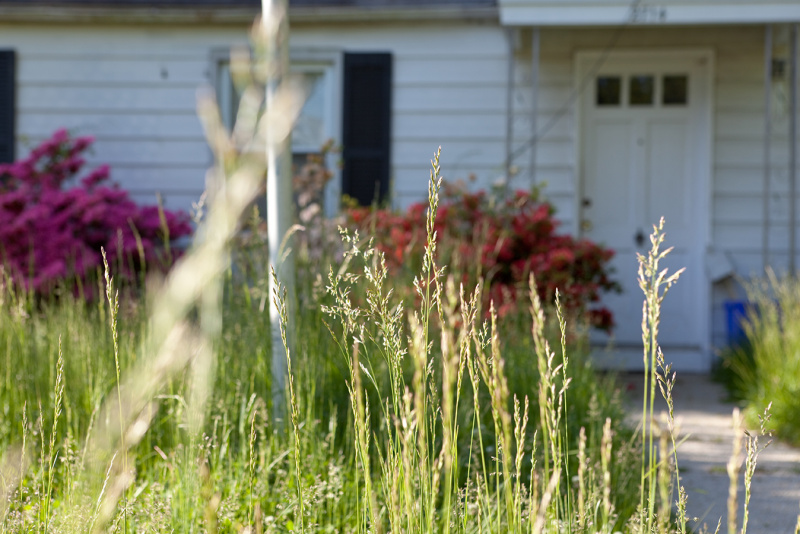At its June 3 meeting, City Council took another step toward giving the City’s Nuisance Housing Code more teeth.
The council voted unanimously to reduce the violation height for grass and weeds from 12 inches to 7 inches and reduce the legal Notice to Abate timeframe for grass and overgrowth from 15 business days to 10 calendar days. Both changes are in accordance with state statute.The City will bring additional code changes regarding dangerous properties before council later this summer.
“Every small step the City takes to get a handle on nuisance properties adds up,” says Christina Dicken, who lives in the Doling neighborhood and has served as the neighborhood association’s president. “I’m thrilled council is addressing tall grass and weeds. Not only are unkempt yards unsightly, they provide habitats for rodents, snakes and insects.”
“By bringing Springfield into compliance with the state statutes, we are improving the chances of being able to better control areas overgrown by grass and weeds. Residents with unkept yards frequently also park in the yard and are not respectful of their home or neighborhood. These smaller steps may be a path to preventing full-blown nuisance properties,” said Meador Park Neighborhood Association President Bobbi Ream.
“West Central is very excited for the changes to the housing code. Nuisance properties are an issue throughout the city. They bring down home value and increase the risk of crime. In West Central, we have a high number of rental properties that are not well maintained. We hope the new code will motivate the landlords to better maintain their properties, thus improving the overall quality of life in West Central,” said West Central Neighborhood Alliance President Caron Parnell.
Mayor Pro Tem Phyllis Ferguson, who represents Zone 1, sponsored the bill and hopes the changes will reduce the wait time for neighbors who have reported violations. She said tall grass and weeds often lead to other problems, such as trash and vector (insects, ticks, rodents, and other animals that can transmit disease to humans).
“This ordinance is another step forward in the battle against chronic nuisance properties and the devastating effects they individually and cumulatively have on our neighborhoods,” Ferguson said. “With additional dollars from carryover funds and the new budget allocations, I’m hopeful that we’ll see quicker turnarounds with chronic nuisance property abatements and dangerous building tear-downs. Most importantly, the message should be clear that the City of Springfield is serious about cleaning up neighborhoods.”
Building Development Services Director Harlan Hill, whose department enforces the Nuisance Housing Code, said the code changes will help the City be more proactive and speed up the abatement process.
In a presentation to council in the spring, Hill proposed an enhanced action plan that calls for standardized communication with law enforcement to ensure the safety of inspectors, increase the use of technology during inspections, provide additional training and basic protocol for BDS staff, review the department’s standard operating procedures for efficiencies, increase the pool of mowing contractors, and increase awareness of BDS’ presence in the community with branded vehicles and uniforms.
“We know it’s a priority for the council to give our staff the tools they need to clean up nuisance properties in our neighborhoods,” Hill said.
The City’s FY2019-2020 budget, which council approved at its June 3 meeting, allocates $123,000 for BDS vehicles, $250,000 for dangerous building demolition and $51,000 in additional funds to shore up the 2019 budget for dangerous buildings and $100,000 in additional funds for nuisance abatement.
Other components of the plan include a formalized referral program to social services agencies for property owners and tenants, neighborhood incentives and continued support for public education and safety programs regarding nuisance properties, such as Community Partnership of the Ozarks’ Safe and Sanitary Homes and landlord training programs.
In 2018, the City received 2,039 reports of grass, brush and weed overgrowth in the city limits.
To report tall grass/weeds or other nuisance issues, call the Citizen Resource Center at 417-864-1010, visit springfieldmo.gov and click “Report a Concern,” or report it through the City’s GoSpringfieldMO mobile app, which can be downloaded from Apple or Google Play.


